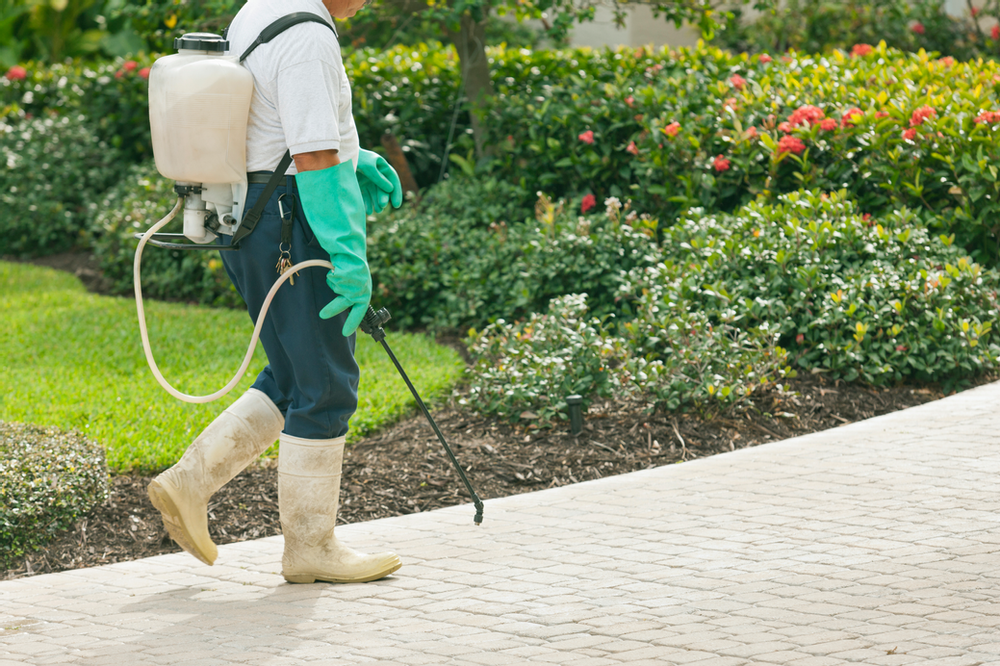About Us
The Pest Management Association of Trinidad and Tobago (PMATT), is a non-profit organisation, that was formed and registered in 2007. PMATT collaborates with stakeholders and promotes the safe use and application of pesticides and other non-chemical treatment procedures by Pest Management service providers and professionals.
PMATT
Conception
In 1998 the Pest Management industry was presented with a set of draft regulations for Pest Control Operators by the Pesticides and Toxic Chemicals Control Board. The Board, like others in the Public and Private sectors, desired to discuss the industry’s issues with a representative organization and not individuals or individual companies. Since there was none, a handful of Pest Management Service providers collaborated to meet the challenge.The Pest Management Association of Trinidad and Tobago (PMATT) was formed and registered as a non-profit organization in 2007.
Vision statement
We envision the transformation of an industry where consumers and the public, in general, are assured of an environment that is safe and healthy, through the safe use and application of pesticides and other non-chemical treatment procedures, by trained and certified Pest Management professionals.
Mission statement
Our Mission is to bring collaboration amongst Pest Management service providers and professionals and to promote the highest level of business ethics, professionalism, and best practice industry standards, through education and training, for the benefit of consumers and the environment.

Why the association?
- The need for a body which will represent the collective interest of the industry to regulatory agencies, clients, and the general public.
- Collectively pursue common approaches to respond effectively to issues of service delivery standards, training, certification, service agreements, warranties, tenders and quotations.
- The need for an unbiased representative body to inform consumers of the minimum acceptable standards and best practices of the industry.
Our Strategic Goal
-
To bring together all Pest Management service providers and professionals, i.e. large and small companies, individual operators and Service Technicians.
-
To provide a platform where all members will have the opportunity to express their opinions, a platform where those opinions will be heard and considered.
-
To be the official representative of its members in matters relating to regulation, legislation and Government authorities.
-
To promote the aims and objectives of members to all relevant bodies.
-
To develop and recommend policies to reinforce and maintain Best Practices for our industry.
Code of Ethics
The Pest Management Profession provides a service integral to the welfare and development of all aspects of society, while engaging at times, in the use of toxic and potentially harmful or dangerous materials.
It is in this regard, that it must be incumbent upon all Pest Management Professionals, in the course of executing their duties, to at all times, in all things and in all ways, hold the safeguarding of human health, the preservation and protection of the environment, it’s flora and fauna, paramount.
Practitioners should provide, quality service to their clients and the community in a highly professional and ethical manner, in order to advance and uphold, the honor and dignity, of the profession. The PMATT has established the following code to define the professional conduct and ethics, binding on all its members.
Code of Practice
This Code provides the operating guidelines to Pest Management service providers and professionals on the safe handling, use, application and sales of dangerous pesticides and other forms of treatment (non-chemical), for the protection of members, the environment and the public in general. It will serve in the interim as a basis for a more elaborated code as the industry develops.
This, and every other code, must remain open to amendment from time to time to conform to changes in existing legislation and/or the enactment of any new laws or regulations.
The guidance provided in this code, centers mainly on best practices and is in conformity with existing laws. However, these guidelines cannot and does not address every possible situation.
Advocacy Agenda
The Pest Management Association will engage in an aggressive advocacy campaign to bring about positive change in Public Health Pest Management policy and resource allocation for the protection of consumers, the environment and the development of the Public Health Pest Management services industry. Such a policy will also address issues of unsafe practices, especially related to the application and use dangerous pesticides.
The following forms part of the agenda:
- Petitioning the authorities to make the registration of non-propriety pesticide formulations, a public good, not owned by any particular firm.
- Lobbying the financial services sector and the Town and Country Planning Division to make inspections for Wood destroying Organisms (and the required treatments) mandatory for the construction, the change of ownership or the insuring of all buildings.
- Incorporating the Pest Management Association of Trinidad and Tobago by an Act of Parliament, giving it superior legal status as the recognized advocate for the Pest Management services industry.
- Persuading the appropriate authorities to discontinue the existing monopolistic and discriminatory unfair trade constraint practices relating to the importation of pesticides.
- Influencing legislators to enact laws, which will make it illegal for products which are labeled as pesticides to be sold or transferred to anyone other than a certified Pest Management Professional.
- Implementing consumer protection legislation, specifically tailored to the needs of customers of the Pest Management services industry.
- Influencing the Government to enact regulations, which will make it compulsory for certain types of businesses to have pest management service at fixed intervals, from certified Pest Management Professionals.
- Representing our members in matters relating to vendor compliance and stewardship.

